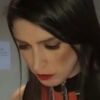17 Viral Diseases Books That Experts Trust for Critical Insights
Recommended by Christina Stage Break Warren, Clara Jeffery, and Rajeev Chandrasekhar for Viral Diseases Books enthusiasts







What if you could trace the invisible threads that connect viral outbreaks through history, science, and human stories? The impact of viral diseases stretches beyond biology, shaping societies and policies worldwide — an ever-relevant concern as new threats emerge just over the horizon.
Experts like Christina Stage Break Warren, a Senior Cloud Advocate at Microsoft, found their understanding profoundly shaped by detailed narratives such as And the Band Played on, which unpacks the AIDS epidemic with human depth. Meanwhile, Clara Jeffery, Editor-in-Chief of Mother Jones, emphasizes the parallels between past and present politicization of science, reinforcing just how vital these insights are to comprehend today’s viral challenges.
While these expert-curated books provide proven frameworks and deep knowledge, those seeking tailored insights specific to their background, experience, or areas of interest might consider creating a personalized Viral Diseases book that builds on these foundational perspectives.
Recommended by Christina Stage Break Warren
Sr Cloud Advocate, Microsoft; media and tech expert
“@jsnell @monkeydavid Also the HBO film is one of the best ever. I saw it as a child and then read the book. I think I was 9 or 10. It’s one of the rare books I have a physical and kindle copy of to this day.” (from X)
by Randy Shilts··You?
by Randy Shilts··You?
During the early years of the AIDS epidemic, Randy Shilts developed a detailed account of how politics, public health authorities, and scientific communities interacted amid the crisis. You gain a deep understanding of the federal government's delayed response and the human stories behind the headlines, especially in chapters detailing the CDC's early struggles and the media's role. This book suits those interested in the intersection of health policy, social justice, and infectious disease history, offering insights into how institutional failures can shape public health outcomes. While it might not serve those seeking purely medical explanations, it provides a vital narrative on epidemic management and societal impact.
Recommended by Rajeev Chandrasekhar
Tech investor, BJP MP, national security advocate
“Reading this very interesting book by @Ayjchan n @mattwridley tht tries to investigate origins of #COVID19 tht caused the last 24-25 months of nightmare for the world n all of us 😅” (from X)
by Matt Ridley, Alina Chan··You?
by Matt Ridley, Alina Chan··You?
Drawing from their combined expertise in science and writing, Matt Ridley and Alina Chan tackle one of the most complex puzzles of recent times: the origin of COVID-19. You gain detailed insight into virology laboratories, the behavior of viruses, and the intricacies of tracing pathogen origins through genetic analysis and field research. The book carefully examines conflicting evidence about how SARS-CoV-2 emerged, offering lucid descriptions of bats and laboratory practices that frame the debate on natural versus lab-leak origins. If you're seeking a nuanced exploration of viral emergence grounded in investigative rigor, this book will deepen your understanding of infectious diseases and the scientific challenges they pose.
by TailoredRead AI·
This personalized book explores viral diseases in depth, tailored to your background and learning goals. It examines viral structure, transmission pathways, immune responses, and prevention techniques with clarity and enthusiasm. By focusing on your specific interests, the book reveals how viruses interact with hosts and communities, shedding light on outbreak dynamics and control measures. It covers current knowledge while connecting to historical and emerging viral threats, providing a custom learning path that matches your expertise. This tailored approach ensures you gain precise understanding and practical knowledge relevant to your unique objectives in viral disease mastery.
Recommended by Angela Merkel
Former Chancellor of Germany
“I have now read the book by Joe Miller about the development of the vaccine at BioNTech. Ugur Sahin had already understood the scale of the pandemic on 24 January. I wasn't that quick.” (from Amazon)
by Joe Miller, Özlem Türeci, Ugur Sahin··You?
by Joe Miller, Özlem Türeci, Ugur Sahin··You?
Drawing from decades of pioneering research in immunotherapy, Joe Miller narrates the story of Ugur Sahin and Özlem Türeci, whose work on messenger RNA reshaped vaccine science. You gain insight into how BioNTech's rapid development of the COVID-19 vaccine overcame scientific skepticism, political hurdles, and logistical challenges, revealing the complex interplay between innovation and global health policy. The book details their journey from early cancer research to creating twenty vaccine candidates within weeks, providing a nuanced understanding of vaccine science and pandemic response. If you want to grasp the science and human determination behind one of the fastest vaccine rollouts in history, this book offers a clear and engaging account.
Recommended by Mark R. Levin
Conservative talk show host and author
“Marc Siegel's great new book is out! COVID: The Politics of Fear and the Power of Science” (from X)
by Marc Siegel··You?
by Marc Siegel··You?
Marc Siegel's decades as a medical analyst and clinical professor shine through in this examination of COVID-19 and the societal response it triggered. You gain insight into the interplay between science, media, and politics, learning to distinguish legitimate risks from exaggerated fears. Chapters dissect how government messaging and media coverage fueled a culture of anxiety, while also exploring how you can critically assess information to protect your well-being. This book suits anyone navigating health decisions amid a pandemic, especially those seeking clarity beyond headlines and politicized debates.
Recommended by Adar Poonawalla
CEO, Serum Institute of India; vaccine advocate
“He has saved millions of lives through his work at the Gates Foundation supporting the vaccine industry including SII over several decades. I enjoyed reading Bill Gates' latest book; extremely insightful and optimistic that if world leaders take note, we may prevent the next pandemic.” (from X)
by Bill Gates··You?
by Bill Gates··You?
Bill Gates challenges the assumption that pandemics are inevitable, drawing on decades of experience with the Gates Foundation to argue that coordinated global action can prevent future respiratory disease disasters. You’ll gain insight into the science behind infectious diseases and understand how governments and private sectors must collaborate to build resilient health systems. Chapters detail practical frameworks, such as establishing rapid response teams and investing in vaccine manufacturing capacity, which are crucial to stopping outbreaks before they escalate. This book is particularly useful if you want a clear-eyed perspective on pandemic prevention rooted in real-world expertise and global health policy.
by TailoredRead AI·
by TailoredRead AI·
This tailored book explores viral diseases with a focus that matches your background and specific interests, aiming to deepen your understanding within a focused 30-day plan. It covers essential concepts about viral biology, transmission patterns, host responses, and epidemiology, blending foundational knowledge with current research. By emphasizing your goals, the book guides you through a personalized pathway, addressing complex topics in a clear, engaging manner. It reveals how viral diseases emerge, spread, and impact populations, while also examining prevention and control measures. This personalized approach ensures the content aligns with your learning pace and interests, making complex scientific insights accessible and relevant to you.
Recommended by Kaleigh Rogers
Reporter covering politics, tech, and science
“@rachsyme Spillover is a fantastic book though. I'd also recommend Pandemic and/or The Fever by @soniashah” (from X)
by David Quammen··You?
by David Quammen··You?
When David Quammen explores how diseases jump from animals to humans, he draws from his extensive background in nature writing and investigative journalism to unravel a complex global threat. You learn the science behind spillover events through vivid storytelling—like tracking bats in China and gorillas in the Congo—that reveals how pandemics such as Ebola and SARS emerge. This book offers detailed insights into zoonotic transmission mechanisms, epidemiology, and the ecological factors driving outbreaks. If you're intrigued by the intersection of wildlife, human health, and global pandemics, this book provides a grounded understanding of what triggers the next major viral crisis and why it matters for public health.
Recommended by The Wall Street Journal
“[Catharine Arnold] is good at looking at civilians as well as troops and their nurses and doctors and at teasing out the human side of the catastrophe… powerful stories of ordinary people.” (from Amazon)
by Catharine Arnold··You?
Drawing from her background in English and psychology, Catharine Arnold offers a vivid narrative on the 1918 Spanish Flu pandemic, blending archival research with personal stories from civilians, soldiers, nurses, and doctors. You gain insight into how the pandemic unfolded amid World War I, with governments suppressing information and medical resources stretched thin, illustrated by episodes like Philadelphia running out of coffins. This book suits those interested in medical history and viral disease impact, providing a human-centered perspective rather than solely clinical details. If you're seeking a global view of one of history's deadliest outbreaks and how it shaped societies, this book delivers a compelling account grounded in firsthand experiences.
Recommended by Jeff Dean
Senior Fellow & SVP, Google AI Research and Health
“Thanks for the pointer, @joetimmons79! Also, looks like John Barry, the speaker in the video, is an author, & has an interesting looking book about the 1918 flu (if flu pandemic books while social distancing is your cup of tea: I've added to my queue):” (from X)
by John M. Barry··You?
by John M. Barry··You?
John M. Barry brings his extensive historical and scientific expertise to bear in this detailed study of the 1918 influenza pandemic, revealing not just the medical crisis but the societal and political challenges that shaped it. You encounter a vivid narrative that explains how the virus spread amid World War I, the often flawed public health responses, and the lessons about transparency and leadership that resonate today. Chapters covering the intersection of science and politics highlight why misinformation and distrust can worsen a pandemic's impact. This book suits anyone looking to deeply understand viral outbreaks beyond surface-level facts, especially those interested in the interplay between disease, policy, and society.
Recommended by Jon Najarian
Co-Founder @Investitute, CNBC Anchor
“I believe both the corona virus and ebola have a bat connection. Scary, but great book on ebola: Hot Zone by Richard Preston” (from X)
by Richard Preston··You?
by Richard Preston··You?
Unlike most narratives that skirt the edge of scientific inquiry, Richard Preston's "The Hot Zone" plunges into the grim reality of viral outbreaks, chronicling the sudden emergence of the Ebola virus with gripping precision. Drawing from his background as a seasoned New Yorker writer and his unique access to CDC insights, Preston details the virus’s origins and the military-scientific efforts to contain it, painting a vivid picture of contagion and crisis management. You’ll learn about the biology of Ebola, its deadly transmission patterns, and the human stories entwined with outbreaks, particularly in the suburbs of Washington, D.C. This book suits anyone seeking a deep, narrative-driven understanding of viral diseases beyond dry textbooks, especially those interested in infectious disease control and epidemiology.
Recommended by Elizabeth Kolbert
Pulitzer Prize–winning author
“Crisis in the Red Zone reads like a thriller. That the story it tells is all true makes it all more terrifying, and there’s no one who could tell it better than Richard Preston.” (from Amazon)
by Richard Preston··You?
Richard Preston, a seasoned author known for his gripping narratives on infectious diseases, developed this book to spotlight the harrowing 2013–2014 Ebola outbreak and its broader implications for global health. You gain a vivid understanding of the virus's rapid evolution, the frontline medical efforts, and the ethical dilemmas faced during the crisis, such as the allocation of experimental treatments. The book meticulously captures the interplay between science, politics, and human struggle, making it especially insightful for those interested in epidemiology, public health policy, and virology. If you seek a detailed yet accessible account of a major viral epidemic and its lessons for future outbreaks, this book will engage you.
Recommended by Science
“An easily approachable yet factually rich narrative. Oshinsky provides a very readable and enlightening history that also can be appreciated as good storytelling.” (from Amazon)
by David M. Oshinsky··You?
by David M. Oshinsky··You?
Unlike most viral disease histories that focus narrowly on medical breakthroughs, David M. Oshinsky contextualizes the polio epidemic within 1950s American society, revealing how public fear and cultural obsessions shaped the response. You gain insight into the fierce rivalry between Jonas Salk and Albert Sabin, detailed through newly available documents, and learn how fundraising innovations like the March of Dimes transformed public health campaigns. The book also explores shifts in drug licensing and legal accountability, providing a nuanced understanding of how polio influenced broader medical and social systems. This narrative is best suited if you want a layered perspective that goes beyond virology to include social history and policy.
Recommended by Joe Pags Pagliarulo
Syndicated talk show host
“Author and Journalist @SharriMarkson up next on her book "What Really Happened in Wuhan." You MUST see this interview. Information you'll hear nowhere else. Watch now!” (from X)
by Sharri Markson··You?
Sharri Markson, an award-winning investigative journalist, developed this book to uncover the hidden truths behind the origins of Covid-19. Through detailed interviews with whistleblowers, firsthand accounts, and leaked documents, you gain insight into the controversial Wuhan lab research and the global response to the outbreak. Chapters reveal how political agendas and censorship shaped public narratives, offering a rare look behind closed doors in Washington and Wuhan. This book suits anyone seeking to understand the complex interplay of science, politics, and media in viral disease outbreaks, especially those interested in Covid-19's origins and pandemic transparency.
Recommended by Martin Kulldorff
Epidemiologist, former Harvard professor
“In Swedish pharmacies, "when people came in asking for ‘face masks’, they were shown to the skincare aisle, which displayed various facial treatments and creams for both ageing and dirty skin." - @johananderberg in his fantastic book on the Swedish Covid response” (from X)
by Johan Anderberg, Alice E. Olsson··You?
by Johan Anderberg, Alice E. Olsson··You?
When Johan Anderberg first uncovered the intricate details behind Sweden's unorthodox pandemic response, he realized this was more than a national policy story—it was a deep dive into epidemiology, decision-making under uncertainty, and public health philosophy. You learn how Sweden eschewed lockdowns and mask mandates, relying instead on herd immunity, all contextualized with historical insights into infectious disease management. This book walks you through the daily tensions among scientists and policymakers, revealing the human side of pandemic strategy. If you're interested in the crossroads of public health, policy, and societal values, this book offers a nuanced perspective that challenges mainstream pandemic narratives.
Recommended by Paul Graham
Co-Founder of Y Combinator
by Nicholas A. Christakis MD PhD··You?
by Nicholas A. Christakis MD PhD··You?
Unlike typical viral disease books that focus solely on virology or public health directives, Nicholas A. Christakis, a physician and sociologist with a unique interdisciplinary lens, examines the coronavirus pandemic through history, sociology, and genetics. You’ll gain insight into how pandemics reshape societies—not just medically but socially—illustrated with examples from past epidemics and data science. For instance, his exploration of social network dynamics during outbreaks offers a fresh perspective on contagion beyond the biological. This book suits anyone intrigued by how a viral threat can ripple through human behavior, culture, and institutions.
Recommended by Alfons López Tena Fbpe
Jurist and international affairs writer
“.@PeterHotez's book: Advances in biomedicine must be accompanied by concerted action in non-medical drivers of deadly outbreaks—war, political instability, human migration, poverty, urbanization, anti-science and nationalist sentiment, climate change” (from X)
by Peter J. Hotez··You?
Unlike most viral diseases books that focus solely on medical aspects, this work by Peter J. Hotez explores vaccine diplomacy as a critical tool against emerging global health threats. Drawing on his experience as a pediatrician and vaccine scientist, Hotez examines how geopolitical factors like war, climate change, and anti-science sentiments fuel disease outbreaks, using detailed accounts from his role as US Science Envoy. You'll gain insight into how international cooperation and public engagement are vital to preventing pandemics, with chapters that detail diseases like leishmaniasis and MERS, and how diplomacy can revive stalled global health efforts. This book suits those interested in the intersection of science, policy, and global health challenges.
Recommended by Apoorva Mandavilli
Reporter at The New York Times, Covid-19 specialist
“Tune into this conversation with @bborrell about his fantastic new book on the race to develop coronavirus vaccines” (from X)
by Brendan Borrell··You?
Drawing from his background as a biologist-turned-journalist, Brendan Borrell unpacks the intense and complex race to develop the coronavirus vaccine, blending science, politics, and personal rivalries into a gripping narrative. You’ll gain insight into the high-stakes decisions behind Operation Warp Speed, the clash between Moderna and Pfizer, and firsthand accounts from key figures like Michael Callahan observing the earliest days in Wuhan. This book offers a detailed look at the intersection of infectious disease science and global power struggles, making it especially relevant if you want to understand the multifaceted challenges of vaccine development during a pandemic. If you’re looking for a behind-the-scenes perspective beyond scientific data, this is a solid read, though it leans more on narrative than on technical vaccine science.
Recommended by Akiko Iwasaki
Immunology professor at Yale University
“Very excited to receive the book THE LONG COVID SURVIVAL GUIDE edited by Fiona Lowenstein. This book has many great insights and ‘how-to’ tips from amazing patient experts and researchers, including PutrinoLab. Honored to contribute an afterword.” (from X)
by Fiona Lowenstein·You?
Fiona Lowenstein, driven by her deep engagement with patient experiences during the pandemic, assembled a vital resource that addresses the complexities of Long COVID. This book offers you firsthand accounts and expert guidance on everything from symptom management to navigating healthcare and workplace challenges. You’ll gain insight into the nuanced struggles of over two hundred symptoms, with chapters dedicated to mental health, medical advocacy, and practical support strategies. If you’re facing Long COVID or supporting someone who is, this collection delivers a nuanced understanding and tangible advice tailored to your needs.
Recommended by Vinod Khosla
Partner at Khosla Ventures
by Nathan Wolfe··You?
by Nathan Wolfe··You?
Nathan Wolfe, a biologist with firsthand experience tracking viruses in remote jungles, challenges the idea that pandemics are unavoidable catastrophes. You’ll gain insight into how viruses like HIV and swine flu have shaped human history and why our modern lifestyle increases vulnerability. Wolfe takes you on his field missions, revealing how emerging technologies might detect and neutralize viral threats before they spread globally. This book suits those curious about virology’s intersection with human evolution and public health, offering concrete examples from his work rather than abstract theory.
Get Your Personal Viral Diseases Guide in 10 Minutes ✨
Stop wading through dozens of books. Get tailored, expert-backed viral disease insights fast.
Trusted by viral disease experts and enthusiasts worldwide
Conclusion
These 17 books collectively reveal the multifaceted reality of viral diseases — from the personal stories of those affected to the complex interplay of science, politics, and society. If you’re grappling with understanding the origins of pandemics, starting with Viral and The Vaccine offers you rigorous scientific perspectives paired with human determination.
For those aiming to grasp historical context and societal impact, Pandemic 1918 and The Great Influenza provide vivid eyewitness accounts and lessons on leadership. Meanwhile, readers focused on outbreak response and epidemiology may find Spillover and The Hot Zone illuminating.
Alternatively, you can create a personalized Viral Diseases book to bridge the gap between general principles and your specific situation. These books can help you accelerate your learning journey with trusted knowledge tailored to your needs.
Frequently Asked Questions
I'm overwhelmed by choice – which book should I start with?
Begin with And the Band Played on for a compelling overview of viral epidemic history, or The Vaccine for insights into scientific breakthroughs. Both offer a strong foundation to build your understanding.
Are these books too advanced for someone new to Viral Diseases?
Not at all. Many, like The Great Influenza and Spillover, are written to engage readers without specialized backgrounds, blending storytelling with clear explanations.
What’s the best order to read these books?
Start with historical accounts such as Pandemic 1918, then move to current topics like COVID and Viral. This progression deepens context before exploring modern challenges.
Should I start with the newest book or a classic?
Both add value. Classics like The Hot Zone offer timeless lessons, while newer titles like How to Prevent the Next Pandemic address current strategies and future outlooks.
Can I skip around or do I need to read them cover to cover?
Feel free to skip around. Each book stands alone, allowing you to focus on topics that interest you most or address your specific questions about viral diseases.
How can I get focused insights tailored to my interests without reading all these books?
While these expert books provide deep knowledge, personalized Viral Diseases books can complement them by tailoring content to your background and goals. Explore creating your own customized book to get targeted strategies and insights quickly.
📚 Love this book list?
Help fellow book lovers discover great books, share this curated list with others!
Related Articles You May Like
Explore more curated book recommendations

















